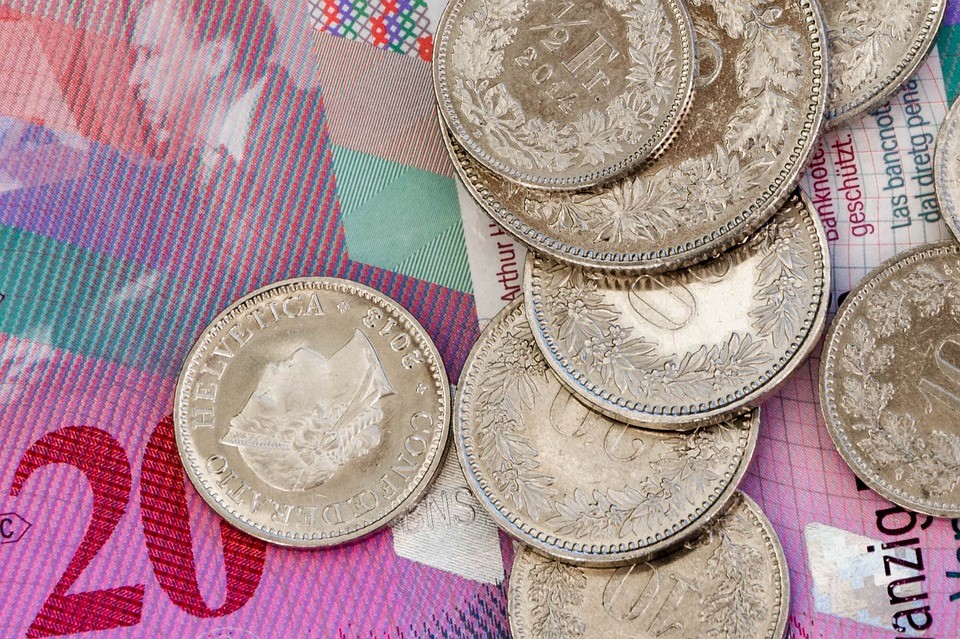Banking Crisis
Those Negative Swiss Rates Put Clients In A Quandry

The topsy-turvy world of negative interest rates reverses the usual time preference logic of paying people a return for forgoing consumption and saving for the long term. Official negative rates are squeezing banks' margins and encouraging clients to look at other, possibly riskier, alternatives.
Holders of Swiss bank accounts face a potentially nasty dilemma:
put money into certain products paying a low return or face
having to cough up a fee for holding safer cash deposits. Such is
the world of negative interest rates.
A figure in the Swiss private banking industry told this news
service that bank literature he received said he could consider
certain savings and investment products or else be hit with the
-0.75 per cent rate involved in staying with cash. For those who
want the cash for liquidity purposes, and fear taking on risk,
that’s an uncomfortable place to be.
There is a risk that some clients might take action they will
regret later, the person, who asked not to be named, told
WealthBriefing.
Swiss regulator FINMA has not accused banks of mis-selling or
improperly pressurising clients about cash alternatives. The
watchdog said it doesn’t guide banks about their specific advice,
although suitability is an important test of how it supervises
banks.
Switzerland, along with Denmark and Japan, has had negative
official interest rates for several years, with no obvious end in
sight. In some other countries, interest rates are so low that
when inflation is factored in, real rates are zero or negative.
This form of “financial repression” is part of the way in which
central banks have tried to boost debt-laden economies after the
2008 financial smash. The policy explains in part why investors
have poured into areas such as private equity and credit, seeking
less liquid assets in return for any kind of yield. The
disruption of COVID-19 means a return to more normal pricing of
capital is as far off as ever.
Charges for cash
A number of prominent banks in the Alpine state have introduced
charges for large cash deposits.
Last October, Credit
Suisse started charging clients with cash balances above
SFr2.0 million ($2.02 million) a rate of 75 basis points,
expanding on a policy it had introduced for holders of euro
accounts. The bank introduced a -0.4 per cent rate for the
first time on 1 September for its clients with a balance of €1.0
million; it had not previously had a negative rate for private
clients with euro accounts.
UBS said that from 1
November 2019, private individuals holding large cash balances of
SFr2.0 million with UBS Switzerland would be charged a deposit
fee of 75 basis points. For clients holding large euro cash
balances with UBS Switzerland AG, the threshold was cut to
€500,000 as of November, from €1 million, which it said was “in
line with competitors”. Holdings above the threshold
are charged a deposit fee of 0.60 per cent per annum.
Although UBS did not comment to this news service about the
latest expression of concern, it is understood that suitability
of any offerings has to be taken into account when talking to
clients about their options.
Julius Baer said
last year that negative interest rates for clients would be
“introduced on a case-by-case basis for certain currencies”
(Swiss franc, euro, Danish Krone and Swedish krona). Clients with
large cash holdings are affected. Asked by
WealthBriefing to elaborate on the issues around
negative rates, the Zurich-listed firm said: “At Julius Baer,
negative interest rates are introduced on a case-by-case basis
for certain currencies (e.g. CHF, euro). Our relationship
managers are in regular contact with clients holding large cash
positions, in order to discuss suitable investment proposals
appropriate to their investment and risk profile as
alternatives.”
Vontobel, responding
to queries, said that it did not “do product push”, adding:
“Cash alternative solutions are shown and explained to clients
but they are always made aware that such solutions are not a cash
substitute. Our philosophy is to carefully listen to our clients,
understand them and think and reflect based on that information.
We then show possible solutions that are discussed together and
implemented based on the client’s requirements.”
Credit Suisse
told this news service: “In line with the approach that has long
been followed by other banks, Credit Suisse also introduced
negative interest rates for clients with very large CHF cash
holdings. The reason for this is the persistent negative interest
rate environment.”
“We have discussed alternative investment opportunities with many clients and continue to do so. Alternative investments are discussed with clients based on their individual situation, needs and risk profile. Depending on the individual risk profile of the client, there are various alternative investment options,” a spokesperson said.
The Swiss
Bankers Association has said that the negative interest rate
policy is no longer needed. It hurts savers and fuels asset
bubbles. While written in the typically restrained language of
such missives, a report from the SBA a year ago looking into
central bank policy made it clear that the negative rate is
causing considerable pain and concern.
Negative rates have arguably prompted more consolidation in the
Alpine state's sector. Swiss capital adequacy buffers are
typically higher than in most countries, which has intensified
the pain. The pressure on margins also adds to the loss to the
country's former international attraction - its secrecy laws.
